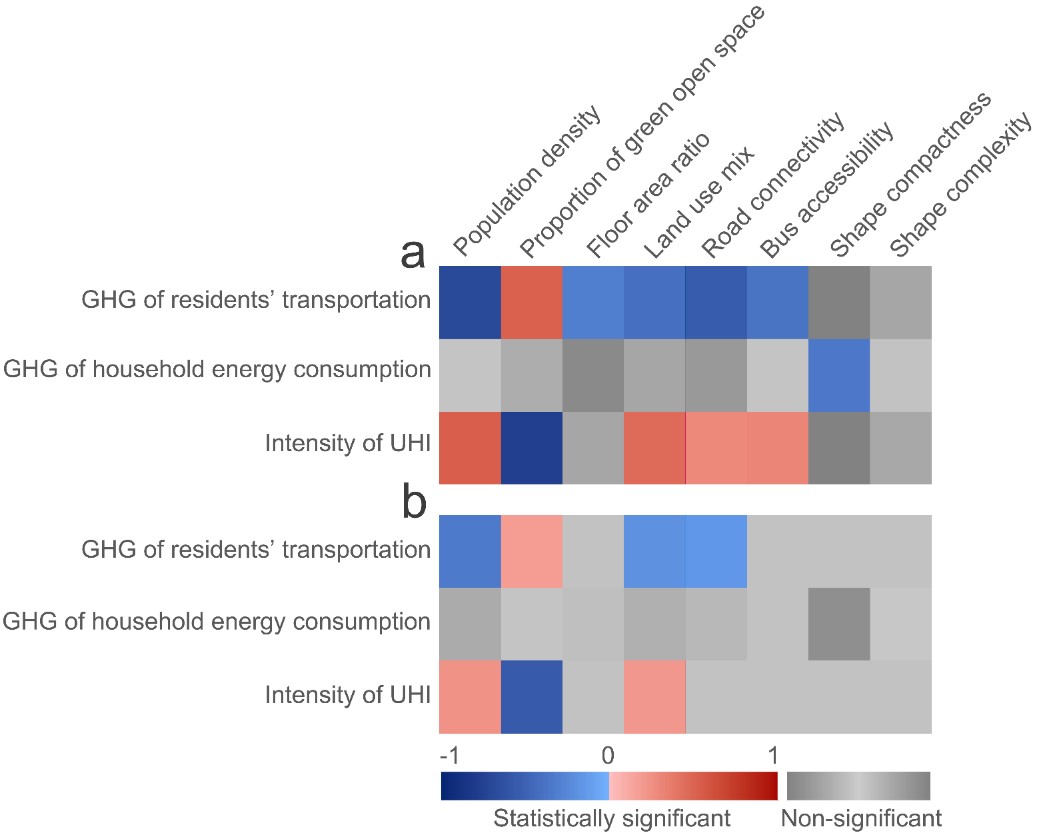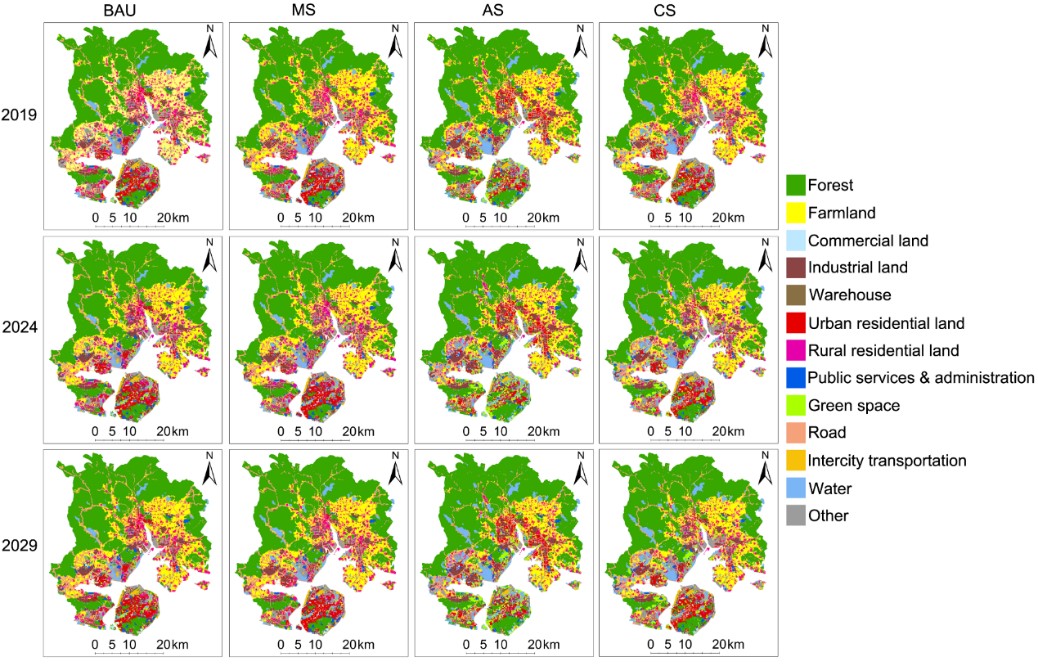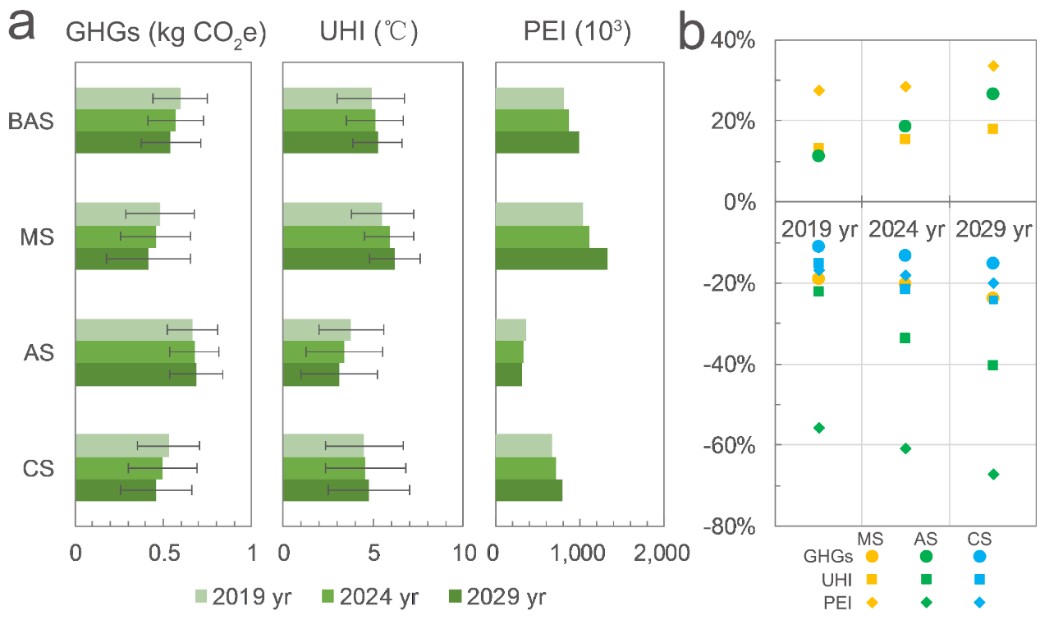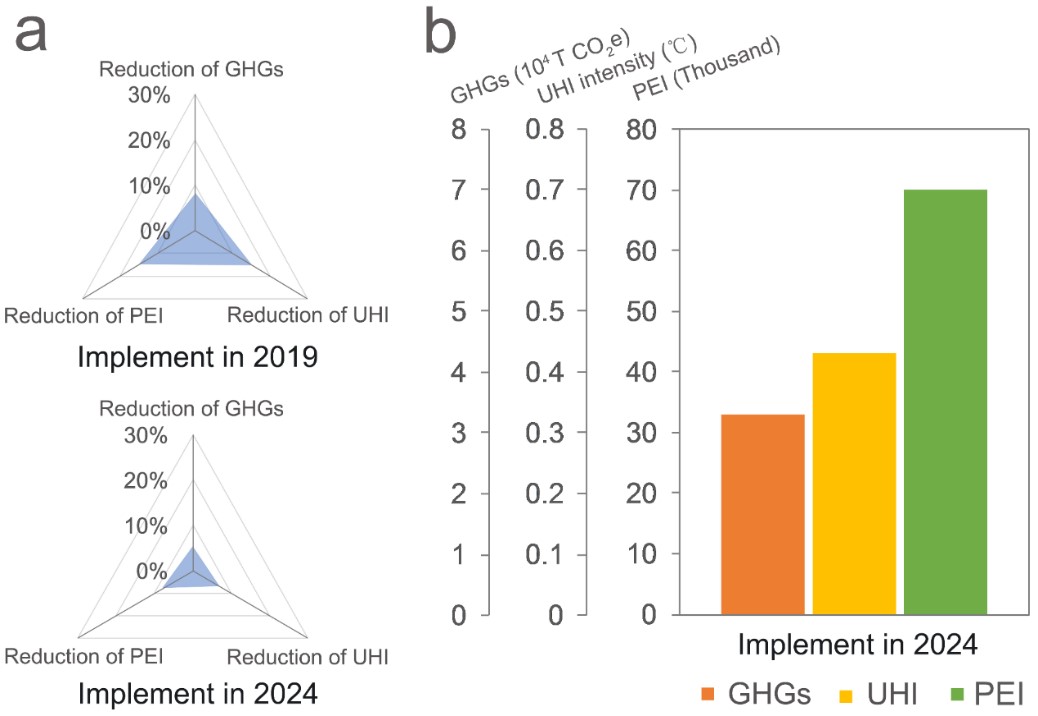Cities globally are facing dual challenges of climate change and urbanization. To address these challenges, and reduce the overall adverse effects, climate change mitigation and adaptation deserve an equal priority for planning and action. Urbanization is one of the important drivers of greenhouse gas (GHG) emissions, with cities consuming 67-76% of global energy and generating 71-76% of CO2 emissions. At the same time, cities are at growing risks of extreme climate events due to the compounded impacts of climate change and urban development. Therefore, a key challenge for global urbanization is to develop strategies that enable cities to take an integrated approach to minimize GHGs for mitigation, while building adaptation to climate stresses. Urban land planning shapes the urban form and is considered to be an effective approach for climate change mitigation and adaptation.
Yet, there is little knowledge about what urban forms can reduce both greenhouse gas (GHG) emissions and climate stresses while considering trade-offs between them. Professor Shenghui Cui and his team in Institute of Urban Environment investigate the role of urban land use in both climate change mitigation and adaptation. In particular, they assess quantitatively the competition between strategies for mitigation and adaptation and identify potential win-win solutions in land use responses. Using a coastal city as a case study, they find that the land use strategies for unilateral mitigation or adaptation can cause contradicting consequences with respect to the reductions in GHG emissions and climate stresses, i.e. reductions in GHGs could increase climate stresses or vice versa. Poorly integrated strategies potentially may compromise international efforts to meet the Climate Action in the Sustainable Development Goals. Properly integrated mitigation and adaptation strategies, or climate-sensitive land use planning, however, can lead to win-win outcomes and eventually achieve co-benefits. Yet, any co-benefits will gradually diminish if there is a delay in climate-sensitive land use planning, implying growing GHGs and intensified climate stresses. Their analysis indicates that integrating climate change mitigation and adaptation in urban land use need to be enacted as soon as possible: any delays in implementation reduce the window to act to maximize the co-benefits.
The above mentioned results has been published at Environment International (2019, 133:105162), Environmental Research Letters (2019, 14: 044013), Environmental Research Letters (2016, 11: 014001), Science of the Total Environment (2018, 644: 1336-1345). Assistant Professor Lilai Xu is the first author and Professor Shenghui Cui is the corresponding author. This study was supported by the National Natural Science Foundation of China, the National Key Research and Development Program of China, and the Bureau of International Co-operation Chinese Academy of Sciences.

Relationships of residential GHGs and UHI intensity with urban form

Future land use maps under different strategy secnarios

Effects of different urban land use strategies on climate change mitigation and adaptation.

Window for urban land use to combat climate change